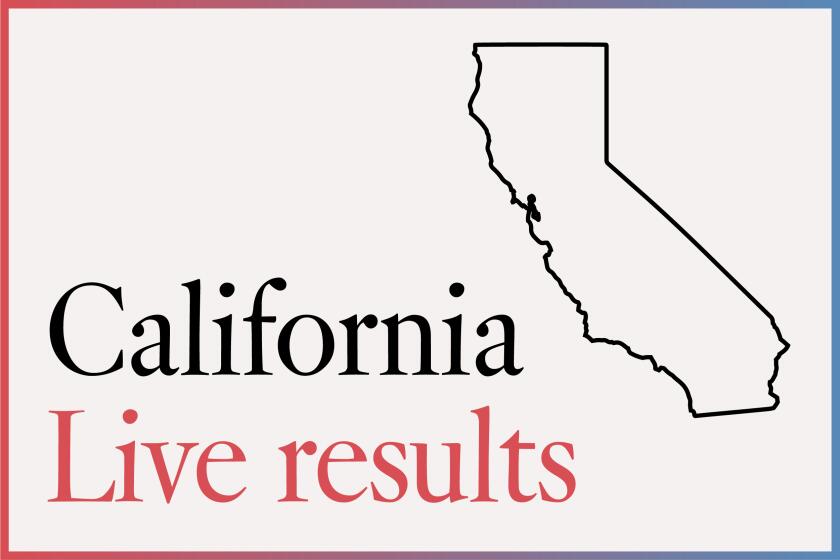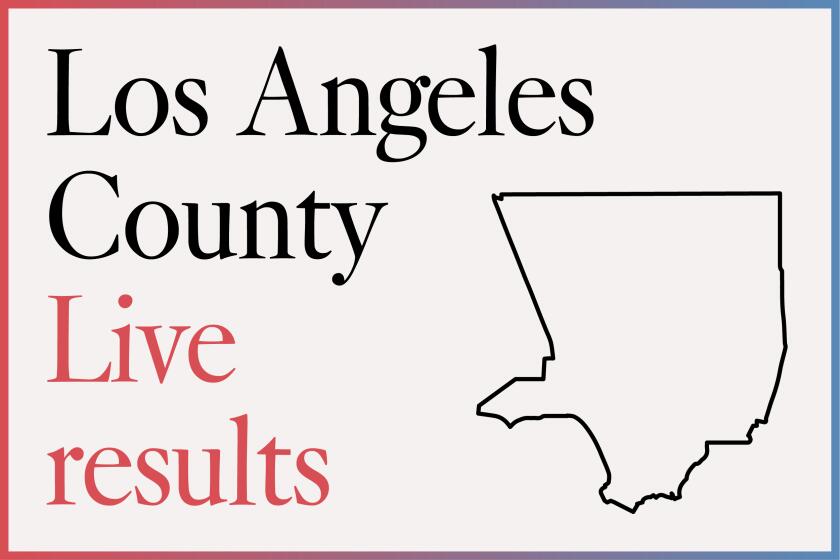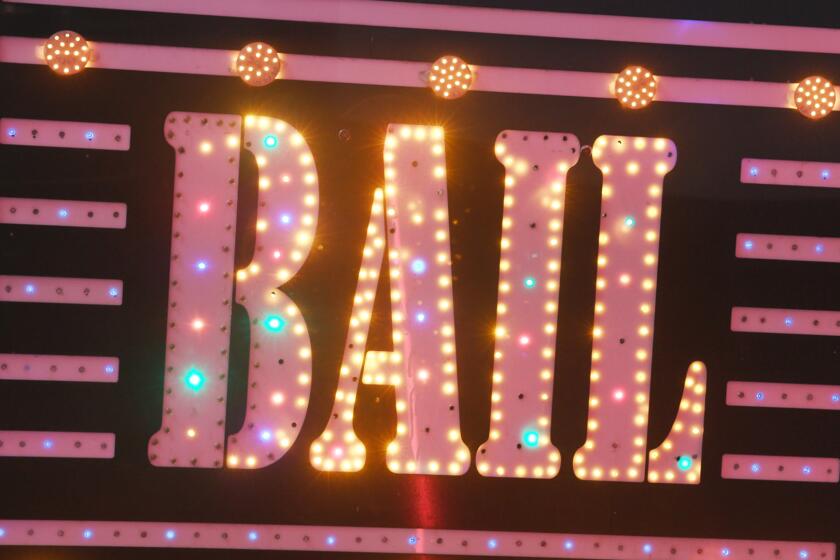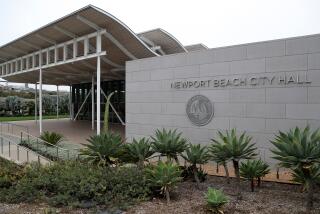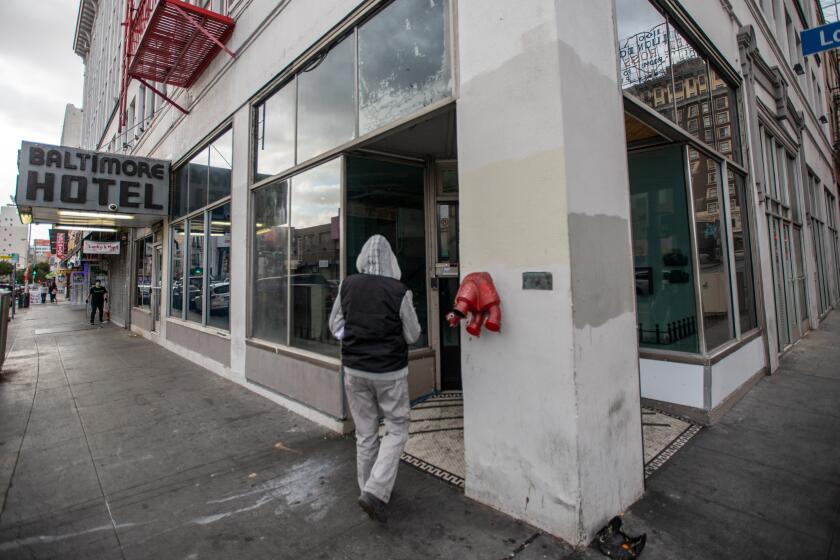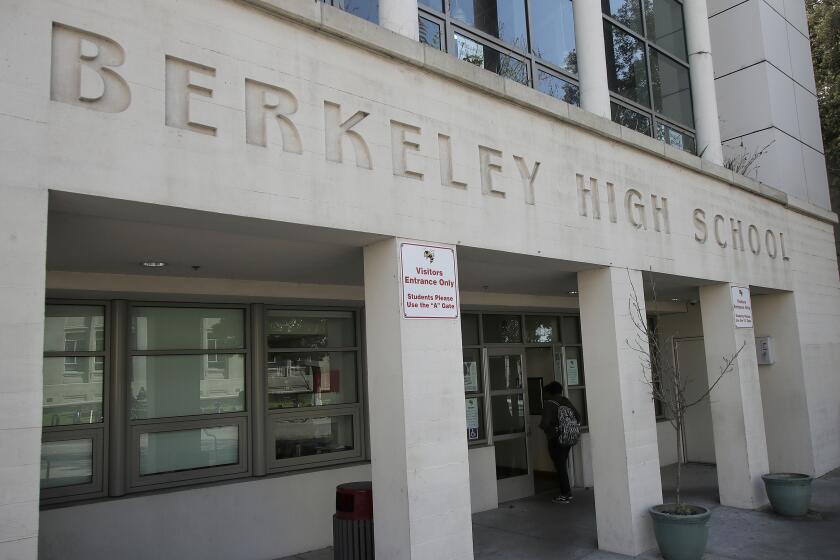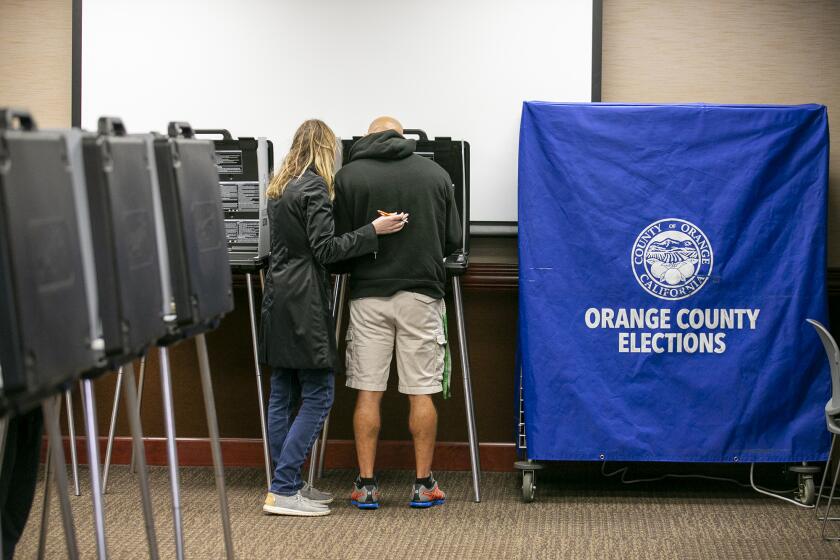Prop. 25, which would have abolished California’s cash bail system, is rejected by voters
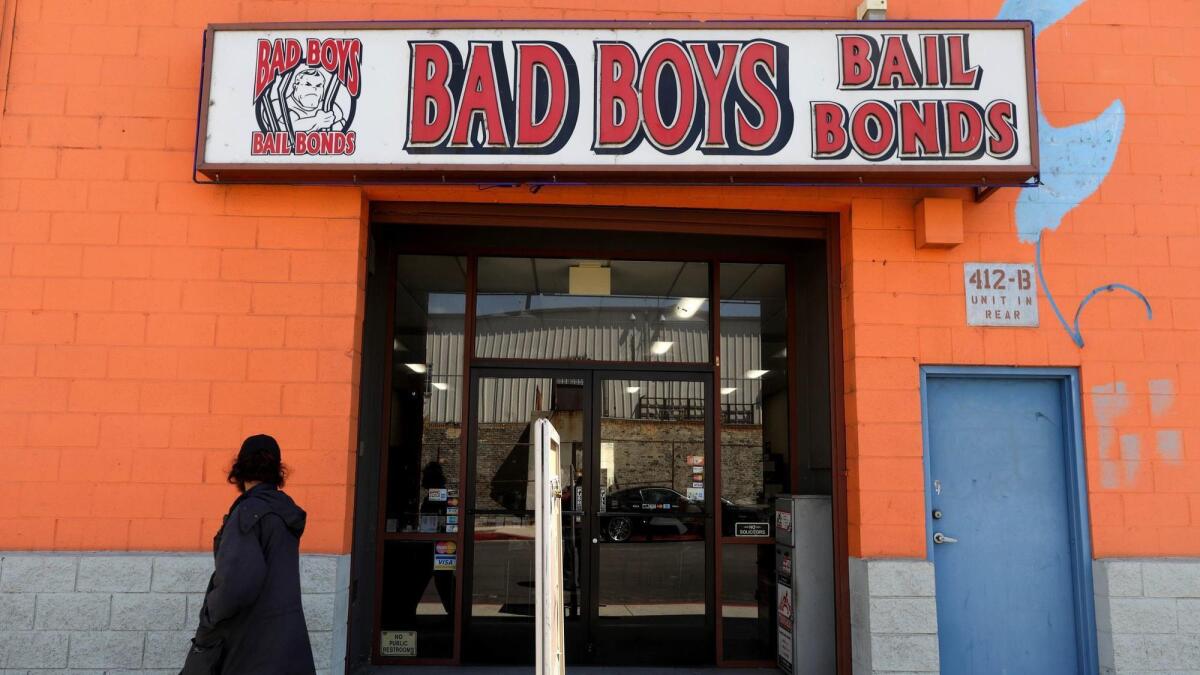
A ballot measure that would have abolished California’s cash bail system was rejected by the state’s voters in Tuesday’s election.
Proposition 25 would have replaced the use of money bail as a condition for getting out of jail while awaiting trial with a system allowing release by judges based on a determination of public safety or a defendant’s flight risk.
Community groups against Proposition 25 said in a statement Wednesday that voters “took heed of our alarms” about eliminating cash bail.
“We warned our communities that if passed, Prop. 25 would automate racial profiling, give unchecked power to judges and increase funding and power for corrupt probation departments,” said the statement by Lex Steppling and Dolores Canales, chairs of a No on Prop. 25 committee.
Proposition 25 was opposed by 55.4% of voters, according to the state’s unofficial election results posted Wednesday.
State legislators who sought to replace cash bail indicated they would try again sometime in the future.
Sen. Scott Wiener (D-San Francisco), a co-author of SB 10, called its repeal by the failure of Proposition 25 “absolutely devastating.”
“Money bail is classist and racist — no one should ever be held in jail or released based on how much money they have,” Wiener said Wednesday. “We cannot give up this fight, and we won’t give up.”
The state Legislature approved the new system in Senate Bill 10 in 2018, but the multibillion-dollar bail industry, which represents some 2,500 bail agents in the state, qualified a referendum that put that law on hold until voters could decide whether to approve it.
The bail industry put up more than $10 million for the campaign to defeat Proposition 25, while supporters raised $13.4 million, including $6 million from Steve Ballmer, the former Microsoft chief executive who owns the Los Angeles Clippers NBA team, and his wife, Connie.
Those wanting to eliminate the payment of money as a condition of release say it unfairly results in low-income defendants remaining in jail awaiting trial, even though they have not been convicted of a crime, while defendants with money are released.
In signing the 2018 law, then-Gov. Jerry Brown said: “Today, California reforms its bail system so that rich and poor alike are treated fairly.”
The financial stakes are high for the bail industry, which issued some $6 billion in bail bonds and collected about $560 million in bail bond fees in 2018, according to a recent report by the independent Legislative Analyst’s Office.
The new law would have required that people held in county jails on suspicion of most misdemeanors be released within 12 hours without having to post cash bail. Those accused of other misdemeanors, including domestic violence or repeated failures to appear in court, would not have been released automatically.
People held in county jails on felony charges and others not released automatically would have been assessed for their risk of possibly committing a new crime or failing to appear in court if released, using various factors. Those judged to be a low-to-moderate risk could be released, although the court could order supervision by county probation staff.
Those deemed to be a high risk would stay in jail until their arraignment.
Prop. 25: Everything you need to know
A study released in September by the nonpartisan Public Policy Institute of California looked at 2015 data and concluded 39.6% of those arrested on suspicion of misdemeanors — about 142,500 people — who were detained or released after two days would instead have been released within 12 hours under the provisions of the new law.
However, thousands of people charged with more serious crimes, who currently might be released within a few hours on bail, would likely be held up to 36 hours for risk assessment under SB 10, the study said.
The law approved by the California Legislature did not win support from all groups advocating for less incarceration.
Groups opposing Proposition 25 include the American Civil Liberties Union of Southern California, as well as Human Rights Watch, which has pressed for bail reform but said the law “exchanges money bail for a system that uses racially biased risk assessment tools [and] gives judges nearly unlimited discretion to incarcerate.”
Gov. Gavin Newsom said recently that division within the reform community over Proposition 25 has been “weaponized” by the bail industry to oppose the measure, and its defeat would be a major setback for efforts nationwide to make the criminal justice system fairer.
“If this initiative goes the wrong direction, it sets back the entire cause and [the bail industry is] back front and center in control of people’s fate and their future,” Newsom said in an Oct. 21 recorded interview with Houston philanthropist Laura Arnold, whose financier husband, John Arnold, contributed $5 million to the Proposition 25 campaign.
“It will be profoundly not just disappointing, but devastating to hundreds of thousands of lives that will be torn asunder because of this miscalculation,” Newsom added. “And we won’t be able to fix it legislatively because the way the bail industry drafted this, we won’t be able to go back and do anything similarly to what we did to lead the nation.”
Proposition 25 was also opposed by more than two dozen sheriffs in California, including Orange County Sheriff Don Barnes, who said ending cash bail removes an “important mechanism” for ensuring defendants appear in court.
More to Read
Start your day right
Sign up for Essential California for news, features and recommendations from the L.A. Times and beyond in your inbox six days a week.
You may occasionally receive promotional content from the Los Angeles Times.
